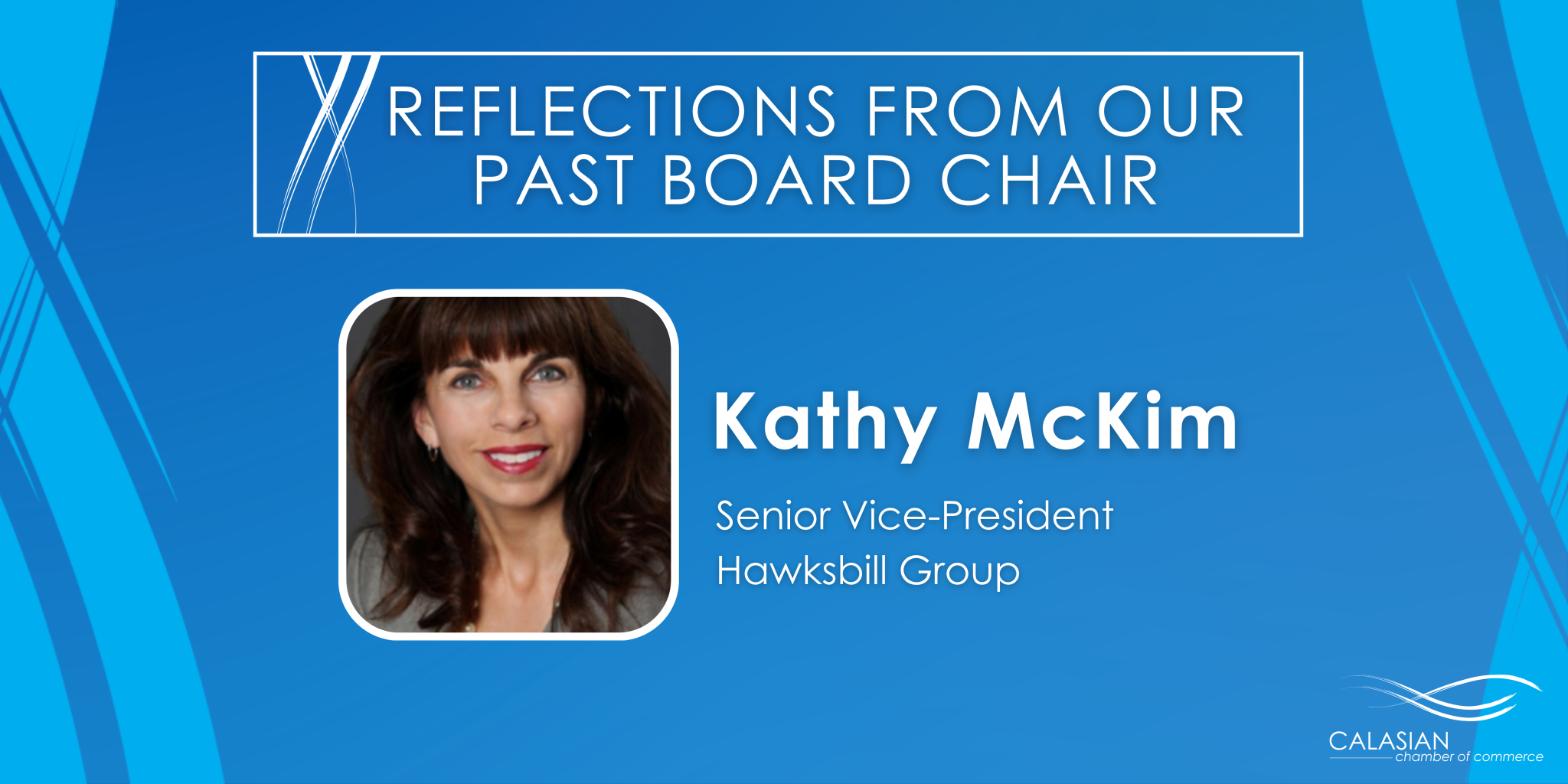3 New Laws Small Businesses in California Should Know

A new year means new laws will go into effect across California. Small business owners need to be prepared for these changes and know what to expect. Here are just three of the new state laws:
State Senate Bill 561
California continues to look for new solutions for housing Californians. One of the latest is SB 561 (Affordable Housing), which requires an audit of all surplus state property to determine what land might be suitable for future housing construction.
The building of more affordable housing, based on locations, will impact small businesses and their local economy.
State Senate Bill 717
SB 717, also referred to as the Broadband Access Point Investment Acceleration Study Act of 2022, will create a blueprint for deploying broadband and expanded wireless access throughout California to provide improved connectivity for low-income and underserved communities.
This can benefit small business owners who now almost always need Internet access for digital bookkeeping, online sales, and more.
New State Holidays
Governor Newsom signed three new state holidays into law in September: Genocide Remembrance Day (April 24), Juneteenth (June 19), and Lunar New Year (on the second or third new moon following the winter solstice). In addition, Native American Day was made a judicial holiday (fourth Friday of September).
These new state holidays recognize our state's history, and celebrate the diversity and cultural richness of California.
Read about more new laws:
CapRadio: 10 New California Laws that Go Into Effect in 2023
Los Angeles Times: How Will California's New Laws Affect You?
CalMatters: The Most Interesting New Laws in California
New York Times: These New California Laws are Taking Effect in 2023
Reflections from CalAsian's Past Board Chair

California is home to an impressive network of statewide leaders who advocate for our diverse business communities. At the California Asian Pacific Chamber of Commerce, we are proud to have several of those voices on our board to provide perspective and advice.
We chatted with our Past Board Chair Kathy McKim, the Senior Vice-President of Hawksbill Group, to hear her career insight and hopes for the new year. Kathy reflected on her time serving as Board Chair as she passes the role on to John Gutierrez, the Senior Director of Government Affairs at Comcast Cable Corporation. Read Kathy's Q&A below.
Q: What were some of your highlights and successes during your time as CalAsian's Board Chair?
A: It has been an honor to serve as Board Chair of the California Asian Pacific Chamber of Commerce for three years and to be on the board for more than 10 years. Key highlights for me as Board Chair include the exceptional response and technical support that CalAsian provided to our minority-owned small businesses during and following the pandemic, which helped support a faster economic recovery in California. In addition, I am proud of our work in promoting equity in all areas, including the passage of AB 2019, Equity in State Procurement, our leadership statewide through the Equity in Energy initiative, and the growth of the CalAsian Foundation building the next generation of AAPI leaders across the state.
Q: How do you hope to see California change and progress in the next few years?
A: California’s economy is diverse, with significant contributions from industries such as technology, entertainment, agriculture, and manufacturing. Its economy is also larger than that of many countries due to its large population and high per-capita income.
I hope to see California continue to lead the country in growing a statewide economy that is inclusive and representative of all Californians. I also want to continue to see progress in equity and opportunity in education across the state, including closing the digital divide through the deployment and adoption of broadband for all. The CalAsian Chamber will continue to lead the way in all areas related to equity.
Q: What is some key advice that has helped you throughout your career?
A: I believe in the value of authentic leadership and staying true to your values and beliefs. Authentic leadership emphasizes honesty and transparency, which inspires trust and teamwork. Communication is also key, supporting a shared vision and aligned goals. This advice to be my own authentic self as a leader has helped me succeed and inspire others to succeed as well. This quote by Lao Tzu is very meaningful: “A good leader inspires people to have confidence in their leader, a great leader inspires people to have confidence in themselves.”
Q: As you leave your role as Board Chair, what are you looking forward to next?
A: As I leave the CalAsian Chamber Board of Directors Chair role, I will remain on the board and move forward in my consulting practice as Senior Vice-President at the Hawksbill Group. I will continue to serve as a Commissioner on the California Volunteers Commission, Chair the Teach for America California Capital Valley Board, and support California Women Lead as a board member. I am excited to also transition into the Board Chair of the Sacramento Region Community Foundation. This organization is focused on growing philanthropy in the region, building nonprofit capacity and ensuring all efforts are rooted in and advance diversity, equity, and inclusion.
The CalAsian Foundation is partnering with the Sacramento Region Community Foundation as we work together to strengthen our state and grow philanthropy and leadership in all our communities.
Read similar articles:
Q&A with Board Member Jason Chan
Equity in State Procurement has been Signed! Here's What's Next
Q&A with Board Member Melinda Yee Franklin
It's National Write to Congress Day! Here's What You Can Do

January 3 is National Write to Congress Day! This day occurs each year as a reminder to use your voice and connect with your representative. Small business owners can use this opportunity to reach out to their elected representatives regarding any bills or legislation that might affect them. Keep reading to learn more.
History of National Write to Congress Day
Each year, the Constitution provides a set time for the new Congress to convene, which is 12:00 p.m. on January 3, except when the previous Congress designated a different day by law. National Write to Congress Day is set on this day to coincide with the constitutional opening day of each new Congress. This holiday encourages citizens to connect with their representatives and fulfill their duty to hold their elected officials accountable.
How to Get in Touch
Click the below links to get in touch with your representatives!
California Legislative Information
Federal Congresspersons:
- Find my Representative
- Directory of Representatives
- Find my Senator
State Congresspersons
- Find your California Representative
To get more involved in public policy efforts led by the CalAsian Chamber, you can learn more HERE, or subscribe to our policy newsletter HERE.
Read related articles on our blog:
4 Questions About Climate Change in California
Equity in State Procurement (AB 2019) Has Been Signed! Here's What's Next
12 Small Business Resources You Should Know About
4 Questions About Climate Change in California

California is the leading U.S. state in climate change efforts. On September 30, 2022, the CalAsian Chamber hosted a virtual Meet & Greet with California Air Resources Board (CARB) Chair, Liane Randolph. She chatted with attendees and explained CARB’s core mission to promote and protect public health by reducing air pollution while considering the effects on the economy. CARB is the lead agency for California’s climate change programs. Here are 4 questions that attendees asked, and here are Chair Randolph's answers:
-
How are California’s air resources and air quality monitored, and what kind of granularity are they forecasted?
Accurately measuring air quality is the foundation of California’s efforts to reduce air pollution. For more than 50 years, California has maintained one of the most extensive air monitoring networks in the world, collecting data on a wide range of pollutants.
The California Ambient Air Monitoring Network consists of more than 250 monitoring stations operated by federal, State, and local agencies. The air monitoring data generated define the nature and severity of pollution in California, provide real-time air quality information, assess community exposure, and more. To find real time and historical air quality data by local air district, click here.
Additionally, the Pollution Mapping Tool includes emissions data for toxic air pollutants along with previously available criteria pollutants and greenhouse gases (GHG) from large facilities in California. The tool can be found here.
Community air monitoring, conducted under California Assembly Bill 617, is intended to generate data that will support action to reduce emissions and exposure. CARB has developed an online resource to provide an abridged compendium of information on air monitoring technologies and activities, and pertinent resources for developing effective community air monitoring programs. Click here.
CARB worked with NASA's Jet Propulsion Laboratory (JPL) to conduct a large-scale statewide aerial methane survey. This first-of-its-kind survey utilized an imaging camera, called Airborne Visible InfraRed Imaging Spectrometer - Next Generation (AVIRIS-NG), capable of seeing methane to visually identify large methane plumes throughout the State. Information on this study can be found here. Additional information can be found on local air district websites.
-
What incentives are available to businesses to lease/purchase/or utilize EV modes of transportation for commuting and business travel within the city (electric vehicle cars, buses, e-scooters, etc)?
There are several resources available for identifying incentives, including the following:
- Electric for All: https://www.electricforall.org/rebates-incentives/
- Moving California: https://ww2.arb.ca.gov/sites/default/files/movingca/movingca.html
- CARB Incentives: https://ww2.arb.ca.gov/our-work/topics/incentives
- California Bicycle Coalition: https://www.calbike.org/bike_purchase_incentives/
- Guide to State & Local E-Bike Rebates and Tax Credits: https://www.juicedbikes.com/blogs/news/state-guide-electric-bike-rebate-and-tax-credit
- The Funding Wizard: https://fundingwizard.arb.ca.gov/we -
What information is available on charging large electric trucks? Do you plan to look back at specific regulatory costs to results?
There is a lot of information available on zero emission vehicle infrastructure for light, medium, and heavy-duty vehicles. Check out the resources available here.
As part of CARB’s rule-making process, the benefits and cost impacts to small businesses are included in the Initial Statement of Reasons. Following several workshops, the economic analysis is reviewed, revised, and presented in the Final Statement of Reasons. Some regulations and programs (e.g., California Climate Investment Program) do track costs and/or other metrics (e.g., tons of greenhouse gases reduced, jobs created, etc.) over a few years.
-
How can California small businesses help measure, track, and report emissions?
Small businesses can get involved in air monitoring activities through the Community Air Protection Program (AB 617). Check the map to find a nearby community and take a look at the community’s website (see the links on the left side of the webpage) for community engagement opportunities, emission reduction activities, implementation progress, and other resources.
Small businesses can also apply for a Community Air Grant. A workshop on the forthcoming solicitation for applications was held on October 20. The video recording of this workshop can be found by clicking here. Sign up for the mailing list by clicking here. The request for applications was released on December 5, 2022 and the applications are due March 3, 2023. Your local air district may also have opportunities for small businesses to participate in air monitoring activities.
More about CARB's work
CARB actively works to:
- Set health-based air quality standards for vehicles, fuels, consumer products, and sources of toxic air contaminants.
- Develops and implement policies and rules to address greenhouse gas emissions.
CARB’s efforts this year have focused on moving away from fossil fuel combustion, including by:
- Continuing to establish regulations (e.g., Advanced Clean Cars II, Advanced Clean Trucks, Advanced Clean Fleets, etc.) to drive the transition to zero-emission cars and trucks;
- Setting a strategy to meet stringent federal air quality standards in the State Implementation Plan (SIP); and
- Developing the State’s climate action plan (2022 Scoping Plan) to achieve carbon neutrality by 2045 or sooner.
California has committed a record $54 billion to support the State’s transition to carbon neutrality, build resilience to climate change, and embed equity and economic opportunity across our climate investments. This includes a combined $10 billion over six years to accelerate the transition of the transportation sector to zero-emissions, with a focus on communities most impacted by pollution. In addition, the State is working to maximize California’s share of federal funding under the Infrastructure Investment and Jobs Act and the Inflation Reduction Act.
Q&A with Board Member Jason Chan

The CalAsian Chamber is advised and led by a Board of Directors with invaluable insight across all industries. One of these voices is Jason Chan, the Director of External Affairs at AT&T. Jason has led an impressive career spanning more than 15 years, with vast experience forging powerful, strong relationships among individuals and organizations. Read more below on Jason's experience and advice.
Tell me more about your role at AT&T and what drives you.
I have two roles at AT&T: working with the national public affairs team and serving as the Chief of Staff to the President of the West Region. In my role with the national public affairs team, I support a variety of third-party groups, largely with the AA/NHPI community, which I’ve been doing for almost eight years. In the chief of staff role, I support Ken McNeely, President of the West Region for AT&T’s External and Legislative Affairs team. There, I work with a variety of state presidents, supporting Ken on day-to-day operational activities.
What drives me? Finding intersections between the AA/NHPI community and AT&T/corporations for potential areas of alignment. Most of the time, diverse communities or nonprofit organizations rarely align with corporations. I always enjoy trying to find areas where the two elements can share space looking for opportunities to expand it.
What kind of impact do you hope to make in California’s diverse communities? Why is this work so important to you?
California is a majority minority state; it’s a melting pot of different communities — people of different backgrounds and cultures. California’s diversity is one of the reasons why it is the fifth largest economy in the world. That diversity is why California is a beacon of hope for people around the world and it’s why people want to live here. What I want to do is lean in on that diversity because California is a state where we celebrate our diversity, whereas other states only tolerate it. The impact I want to make is to continue to highlight California’s diversity and use it to further expand opportunities for California’s residents and to demonstrate to the U.S. the positive power that diversity has on our society.
As a child, I had a lot of help when I came to this country; there were many people that helped me and my mom, adjust to living in the U.S. I want to be able to help new immigrants and minorities just as I was helped. People come to the U.S. thinking of the American Dream, and I want to help these groups achieve their American Dream. My goal is not about cutting up a pie into smaller pieces or getting a larger piece of the pie, it’s about making a bigger pie so that everyone can get more. That’s the impact I want to make.
What is some key advice that has helped you throughout your career?
There's a saying, "A rising tide lifts all boats.” One of the key pieces of advice that I’ve received is that a lot of people have helped me get to where I am, and I should continue that cycle as I move forward. Secretary Norm Mineta used to describe the concept of a ladder, where you use one arm to pull yourself up, and use your other arm to pull up others. Over the years, I’ve received help from countless people, and I’m so grateful for the opportunities that have risen because other people believed in me. Now I’m in a position where I can give back to those that are in my shoes from my past experiences, so I do my best to bring them along whenever I can.
The other piece of advice is that participation is important. You must speak up, otherwise you won’t been seen. It can be hard to find your voice, especially when you feel like you’re the only person like you in the room, and it can be easy to fall prey to imposter syndrome, to feel like you don’t belong — but you can’t let that thought process take over. You were invited to the space, and you need to take that opportunity to shine. Whenever you’re in that situation, you need to remember that you’re speaking not just for yourself, but you’re speaking for your community, so you should never shy away from an opportunity to do just that.
Learn more about CalAsian's Board of Directors here.





